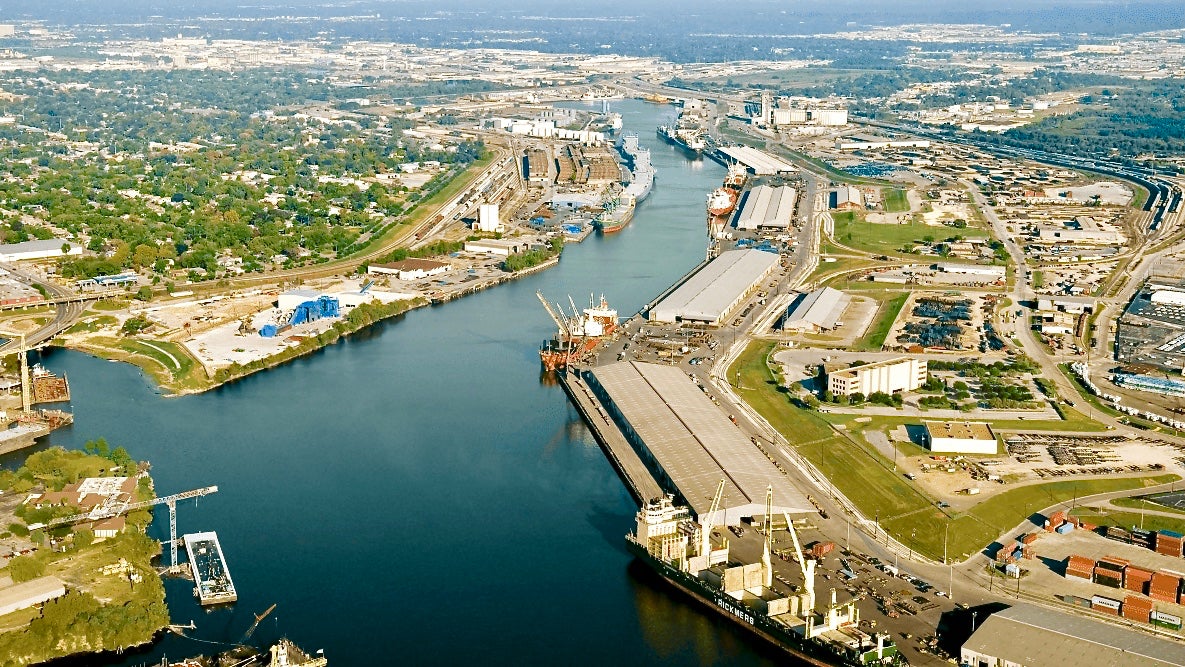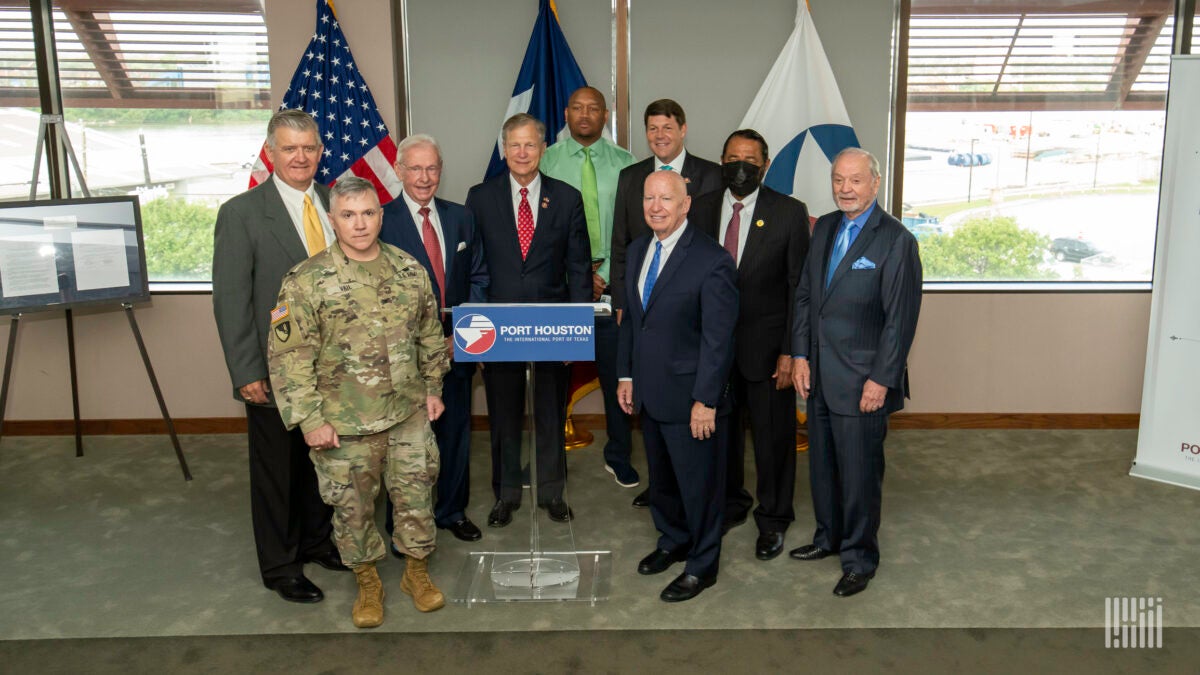Borderlands is a weekly rundown of developments in the world of United States-Mexico cross-border trucking and trade. This week: Port Houston signs agreement for $1.1B channel expansion; German auto parts supplier expands in Mexico; E-commerce 3PL moves headquarters to Arizona; and CBP seizes $20M in meth at World Trade Bridge.
Port Houston signs agreement for $1.1B channel expansion
The Houston Ship Channel is set to be widened and deepened under an accelerated timeline scheduled to begin this year, after Port Houston and the Army Corps of Engineers signed an agreement Thursday for the transformative project.
The $1.1 billion Houston Ship Channel expansion, known as Project 11, could finish as soon as 2025, accommodating an additional 1,400 vessels per year and generate $200 million in economic impact once completed.
“Our port serves as the anchor for our Texas region,” Roger Guenther, executive director of Port Houston, said Thursday during a signing ceremony. “It is a critical step to provide a wider, deeper channel that maintains two-way vessel traffic to more safely and efficiently deliver everyday goods and petrochemical products to and from the region.”
Port Houston is a 25-mile-long complex of nearly 200 private and public industrial terminals along the 52-mile-long man-made Houston Ship Channel, which connects the port to the Gulf of Mexico.
More than 8,200 vessels and 215,000 barges use the ship channel each year, hauling more than 247 million tons of cargo, according to Port Houston officials.
The Project Partnership Agreement (PPA) between Port Houston and the Army Corps of Engineers is the official document committing the port to the responsibilities of the project as the local nonfederal sponsor.
The PPA also gives Port Houston the permits to start dredging the federal waterway. Project 11’s first dredge contract is expected to be awarded as early as October.
Project 11 will widen the Houston Ship Channel by 170 feet along its 26-mile Galveston Bay reach, to 700 feet wide. It will also deepen upstream segments from its current depth of 45 feet, to a depth of 46.5 feet.

The deepening project will allow larger vessels to enter the channel, and a wider channel will allow ships to pass each other more safely.
Project 11 was authorized by Congress in December. Port Houston officials worked with the Corps to expedite Project 11 as quickly as possible, so the project can be completed faster.
The acceleration of Project 11 involves funding from the Corps and from Port Houston and its partners.
Under a traditional funding cost-share model, Project 11 would have received most of its funding from Congress, which implies a longer implementation, including slower authorization, starting later on design and annual appropriations over up to a decade, according to port officials.
Project 11 is the 11th major improvement in the channel’s more than 100-year history. In 2005, Project 10 was completed at a cost of $705 million. Project 10 widened the Houston Ship Channel to 530 feet (from 400 feet) and deepened the channel to 45 feet (from 40 feet).
Port Houston currently ranks sixth for total trade among the nation’s roughly 450 airports, seaports and border crossings and is the third-ranked seaport, behind Port of Los Angeles and Port of Newark.

German auto parts supplier expands in Mexico
Schnellecke Logistics recently opened a new $5 million logistics center in Hermosillo, Mexico, according to a release.
The Landshut, Germany-based company provides automotive supply chain solutions for global automakers.
Schnellecke already has one logistics center in Hermosillo, which employs 180 people. Schnellecke supplies parts for Ford Motor Co.’s assembly plant in the same city.
Schnellecke did not specify the size of the new logistics center, which is adjacent to the existing facility. The new facility created an additional 250 jobs and will supply parts for the Ford Bronco SUV and Ford Maverick pickup truck.
E-commerce 3PL moves headquarters to Arizona
3PL PackDash announced it is moving its headquarters from Chicago to Tucson, Arizona.
PackDash recently leased 6,000 square feet in Tucson and is adding 50 jobs, including managers, directors, warehouse personnel and additional C-level positions, according to a release.
PackDash is a warehousing and fulfillment services platform with a micro-fulfillment model aimed at small to midsize e-commerce companies. The company was founded in 2020 by Dave DiCosola and Kameron Norwood.
CBP seizes $21M in meth at World Trade Bridge
U.S. Customs and Border Protection officers recently intercepted more than $20 million in methamphetamine at the World Trade Bridge in Laredo, Texas.
On Wednesday, CBP officers at the bridge’s cargo facility were checking a flatbed truck hauling galvanized steel coils from Mexico. The officers discovered 30 packages containing 1,030 pounds of alleged methamphetamine within the shipment.
The narcotics have an estimated street value of $20.6 million.
The case was turned over to Homeland Security Investigations.
“Large-scale seizures such as this one help to disrupt the flow of deadly narcotics into our country,” Alberto Flores, port director for the Laredo port of entry, said in a statement.
Click for more FreightWaves articles by Noi Mahoney.
More articles by Noi Mahoney
US Gulf ports to offer liquefied natural gas fueling option
200 transportation and logistics companies the Inc. 5000 list







